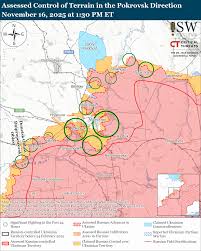
Introduction to Weapons in Modern Society
Weapons have played a critical role throughout history, significantly influencing geopolitical dynamics and security policies. In today’s world, the conversation around weapons has intensified due to advancements in technology, shifting political landscapes, and emerging threats. Understanding the current trends in weapons development is vital for addressing global security concerns and ensuring the stability of nations.
Current Trends in Weapons Development
Recent reports from global security experts indicate a surge in the development of advanced weapon systems, particularly in the realms of autonomous drones and cyber warfare. According to the Stockholm International Peace Research Institute (SIPRI), global military spending reached an all-time high in 2022, with countries investing heavily in artificial intelligence (AI) and unmanned systems to enhance their military capabilities. This reliance on technology raises ethical questions regarding accountability and the future of warfare.
Emerging Technologies
Among the most noteworthy advancements are hypersonic weapons, which can travel at speeds greater than five times the speed of sound. Countries such as Russia and China have made significant progress in this area, prompting the United States to accelerate its own hypersonic programs. The introduction of these weapons could reconstruct conventional military strategies, making traditional defense systems less effective.
International Treaties and Regulations
The rise of new weapons technologies has also led to a reevaluation of international treaties aimed at arms control. The Treaty on the Non-Proliferation of Nuclear Weapons (NPT) continues to face challenges, with concerns about non-state actors gaining access to nuclear materials. Additionally, discussions around banning autonomous weapons are gaining traction, as many organisations advocate for a legal framework that addresses the implications of machines making life-and-death decisions.
The Societal Impact of Weapons
The proliferation of advanced weapons has far-reaching implications for civilian populations. Conflicts exacerbated by these technologies often result in substantial humanitarian crises, displacing millions and creating long-lasting societal instability. For instance, conflicts in regions like the Middle East and North Africa highlight the necessity for robust international dialogue around disarmament and humanitarian concerns.
Conclusion: The Path Forward
As weapons technology continues to evolve, the need for comprehensive policies that promote peace and security becomes increasingly pressing. Governments must balance national security interests with the ethical responsibilities of managing emerging weaponry. The international community must work collaboratively to establish regulatory frameworks that prevent the misuse of advanced weapons and protect civilians from the consequences of modern warfare.
With ongoing global tensions, understanding the dynamics of weapons development will be crucial for citizens and policymakers alike. It is vital to engage in informed discussions about the future of warfare and the role that technology will play in shaping our world.
You may also like


An Overview of the Ongoing Situation in Ukraine
